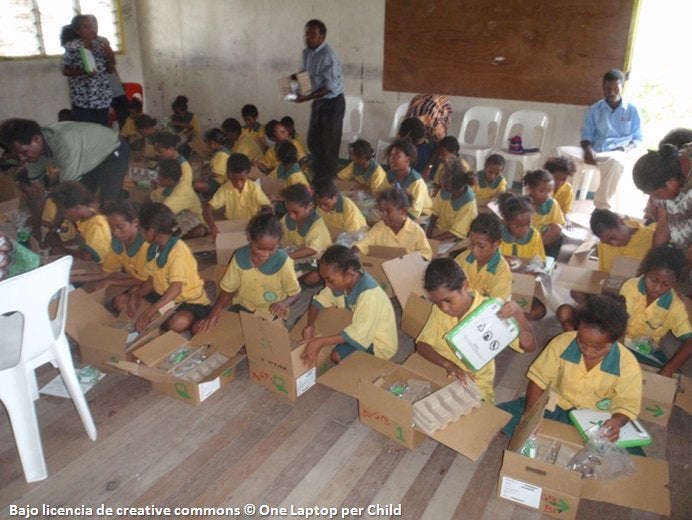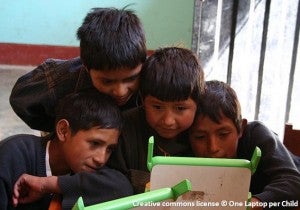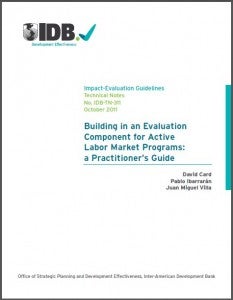Conditional Cash Transfers (CCTs) were a major social policy innovation in the mid/late 1990s. Instead of providing generalized subsidies, using price controls, and/or directly distributing food as means to help the poor (instruments that are inefficient, distort markets and in general are regressive), governments began to transfer cash directly to the poorest families, … [Read more...] about CCTs: not the silver bullet, but with long lasting positive effects
One Laptop per Child revisited
This is joint post with Julian Cristiá, Ana Santiago and Eugenio Severín; members of the IDB team that developed the OLPC evaluation trial in Peru. Last March we published a post (also here) with the results of the first randomized impact evaluation of the One Laptop Per Child (OLPC) model in Peru, which has been widely discussed in the technology and education blogosphere … [Read more...] about One Laptop per Child revisited
And the jury is back: One Laptop per Child is not enough
In 2008 a couple of economists from the IDB visited the Peruvian Ministry of Education to meet with the Education Technology Director. Our purpose was to evaluate an old IDB-project that provided computer labs to middle schools. We were welcomed and were provided with all the support to carry out that evaluation. We were told that the Government's real interest was in … [Read more...] about And the jury is back: One Laptop per Child is not enough
A new evaluation guide for practitioners: labor market programs
With the purpose of providing support for those in charge of overseeing evaluations, we at the Office of Strategic Planning and Development Effectiveness at the IDB are producing guidelines on selected topics and methods. This allows non-evaluators to understand the key steps that are necessary for a credible evaluation to take place. Our latest publication is Building an … [Read more...] about A new evaluation guide for practitioners: labor market programs
Three sources of evidence for solving development challenges
Solving development challenges is a complex task. Rigorous research show that some programs do not work as intended and that most that do work have no huge impacts. A sensible way to proceed when designing development projects is to be guided by three types of evidence: evidence in the identification of the problem, in the drafting of the solution, and evidence generated from … [Read more...] about Three sources of evidence for solving development challenges





